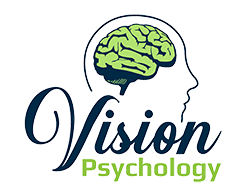Dr Annemie Desoete
Dr Annemie Desoete (Belgium) is an expert in Early Numeracy Skills and Dyscalculia. She is currently a Professor at the Faculty of Psychology and Educational Sciences at the Ghent University in Belgium. She has extensive experience in research on early characteristics of learning disabilities, especially dyscalculia and dyslexia. In addition, she is conducting research on comorbidity with DCD and ASD. She has published several articles on Kindergarten studies related to early math. 
Annemie Desoete has conducted several studies related to the early math skills of Kindergarten students and highlighted some early indicators for math learning difficulties; such as difficulties with counting, less spontaneous focusing on numbers, difficulties with subitizing, difficulties with seriation, classification and magnitude comparison. She also stressed the importance of math language, as many children with language delays also encounter difficulties in mathematics.
Opportunities to learn math at home and at school are vital for at-risk groups such as low-income families. Intensive and more explicit participation in adaptive educational games during Kindergarten years will be beneficial (Desoete & Baten (2017). Motivation and self-efficacy are equally important for math achievement, whereas math anxiety may hinder math development and should be addressed as early as possible.
Dr Desoete shared her recommendations on supporting students who have been diagnosed with dyscalculia, saying “believe in them and focus on ‘insight’. Early intervention by specialists, preferable in a one-to-one situation, that includes feedback, feedforward and provides clear and explicit instruction is crucial, as well as repeating and adding new insights that what is already known. Focus on autonomous motivation (give a choice, explain why) and metacognition.

In Belgium, dyscalculia has been officially recognized for a long time. Psychologists who have an expertise in learning disorders and professionals who have obtained a Masters in Special Education are qualified to provide a diagnosis for dyscalculia. “A diagnosis of dyscalculia can only be given if children meet all criteria, meaning that the disorder can only be diagnosed in elementary school based on severe difficulties mastering number facts or calculation persisting for at least six months despite the provision of interventions that target those difficulties” Desoete & Baten (2017).
The authors also mentioned that dyscalculia is more prevalent among students who have already been diagnosed with ADHD, dyspraxia (DCD) or dyslexia, especially when the students have severe spelling difficulties. However, some students can have ‘pure’ dyscalculia, and score high marks in other school subjects.
Dr Desoete has just published a new book ‘Succeeding with dyscalculia in higher education’ (Oct 2020) in which people with dyscalculia share the obstacles they had to overcome during their school years, but also the success stories. Tips are provided related to the next goal which is finding a job. Searching for individual strengths and simultaneously encouraging employers to be more open to discover the hidden potentials of students who have a mathematics disorder, the book provides a positive perspective on people with dyscalculia.
Reference:
Desoete, A. & Baten, E. (2017). Indicators for a specific learning disorder in mathematics or dyscalculia in toddlers and in kindergarten children. Belgium Journal of Paediatrics, 19(2), 122-124.

